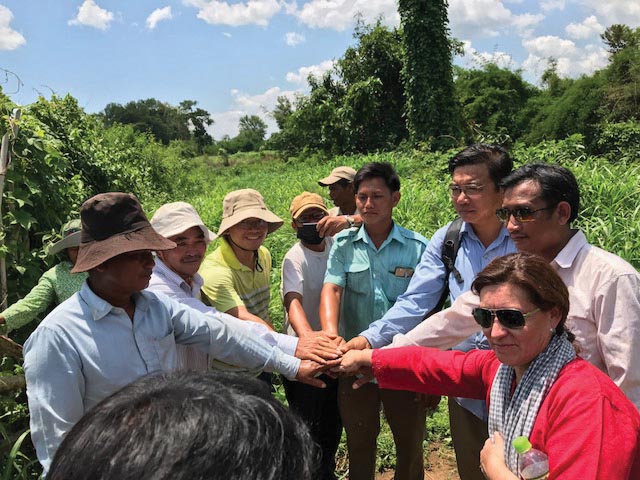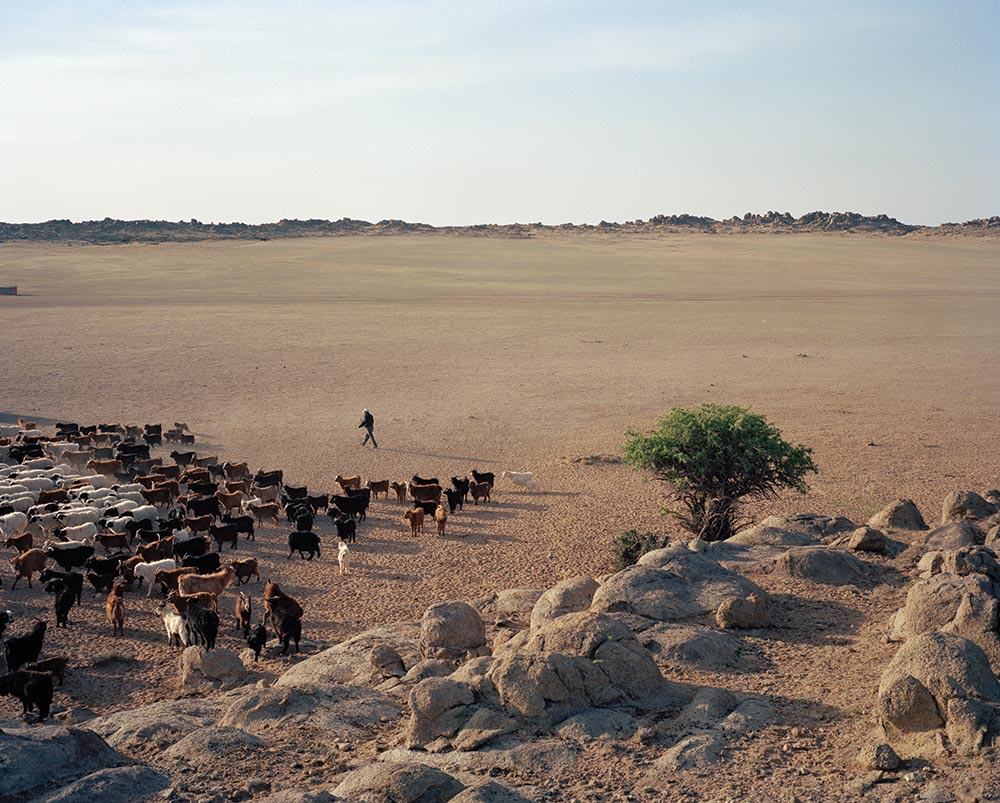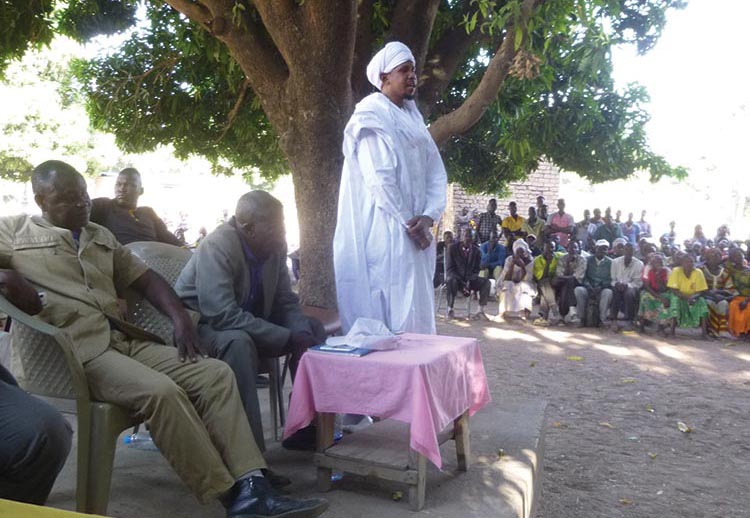Through dispute resolution, CAO works to resolve issues raised in a complaint using a collaborative problem-solving approach. This voluntary process provides opportunities for affected communities and the IFC or MIGA client to engage directly with one another to address environmental and social concerns related to a project.
This year, communities together with IFC and MIGA clients all over the world reached significant agreements and milestones through voluntary dispute resolution processes facilitated by CAO. CAO handled 21 cases in varying stages of dialogue in FY2017, with 75 percent of these reaching partial or full agreement, or settlement monitored by CAO. This included agreements in Cambodia, Chad, and Mongolia.
The road to agreement involves effort and commitment by the parties. This work continues after the agreements are signed and the focus moves to implementation and monitoring. Throughout the process, CAO helps provide the appropriate structure and support to the parties. As the parties work to address challenges together, their relationships are often transformed. These elements, and more, are explored below.
Facilitating Dialogue
Laying the groundwork
CAO moved six cases through the preparatory phase of dialogue this year, working jointly with communities and companies to develop a platform for effective engagement. This work includes identifying a skilled mediator, determining who the parties will mandate as their representatives, and what principles should guide their engagement. Commonly called “ground rules,” these principles cover aspects such as confidentiality, information sharing, and use of media. During this early engagement, community and company representatives experience the potential of working together and often start to build trust.
CAO also worked to build the capacity of the parties in 11 cases (see box 1). This included preparing them for joint meetings, and conducting training in communication and negotiation. These activities often continue throughout the dialogue process.
Ways CAO helped the parties get started this year:
Morocco | Community and company representatives met to exchange information and hear one another’s perspectives, and agreed to engage in a mediated process. Learn More
Bangladesh | CAO provided separate capacity building workshops to the parties to increase their understanding of facilitated negotiation and draw up ground rules. Learn More
Indonesia | The parties met in the presence of a local religious leader to exchange views and agree on a way to resolve concerns related to a hydropower project. Learn More
Finding Solutions Through Dialogue
Once ground rules, scope, and structure are agreed, dialogue can start. Core elements of a dialogue process are that it is voluntary, and the parties — working with a mediator (see box 2) — control design of the process and share responsibility for the outcomes. CAO remains committed to supporting the dialogue provided there is good faith among the parties and satisfactory progress. During this process, relationships are often built that long outlast CAO’s involvement and exit.
Six cases reached partial or interim agreements this year, and a further seven were fully settled.
Dialogue is ongoing in two cases, and and three where the parties did not reach agreement were transferred to compliance. One of these was in South Africa, where CAO worked with the women of Marikana and Lonmin, a large platinum producer. Through separate and joint meetings, the parties agreed on principles to guide their interaction, including confidentiality, good faith, and respect. While agreement regarding the issues raised in the complaint was not reached, the preparatory stages were important in providing a platform for the parties to interact.
Interim Agreements Reached
Six cases reached partial or interim agreements this year. Highlights include:
Albania | The parties reached interim agreements including an independent study to assess seismic activity and joint monitoring trips to assess environmental impacts of an oil and gas development. Learn More
Nicaragua | A joint agreement was signed in January 2017 between former workers and Montelimar, a sugar producer. Agreed actions include provision of health care and livelihood support to former workers affected by chronic kidney disease. Learn More



